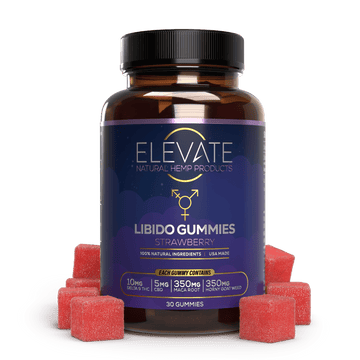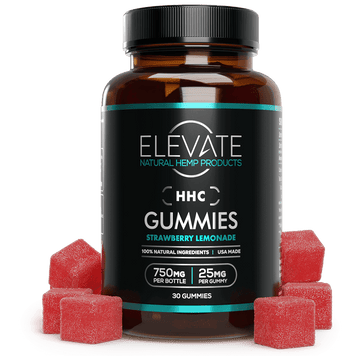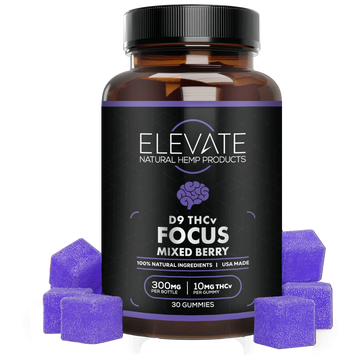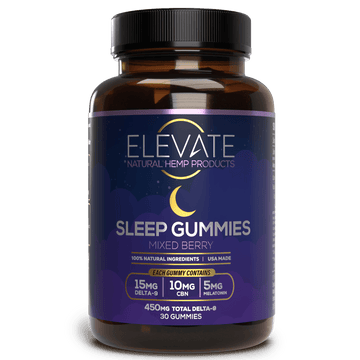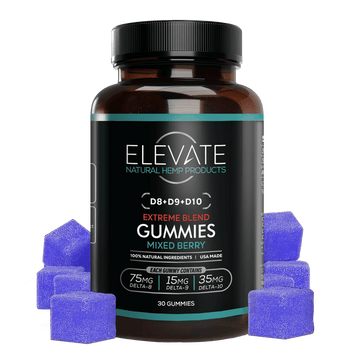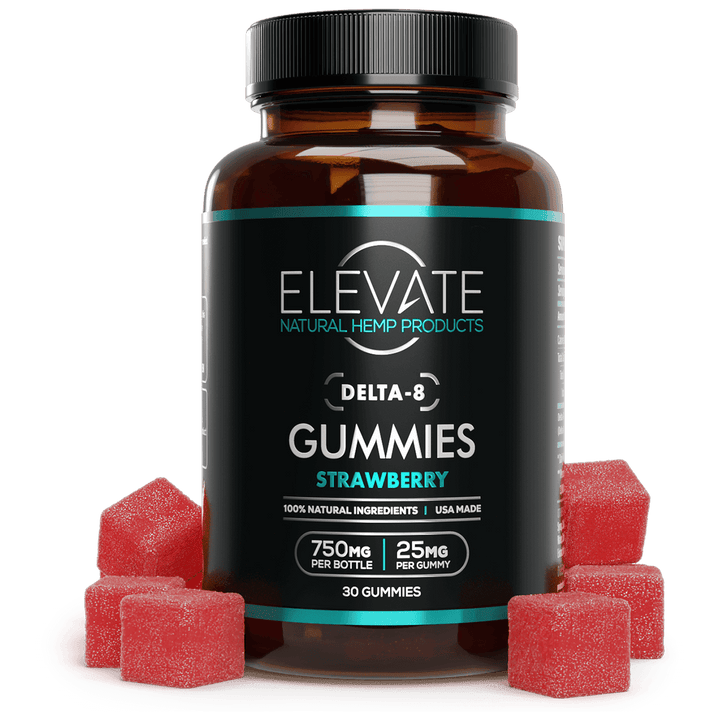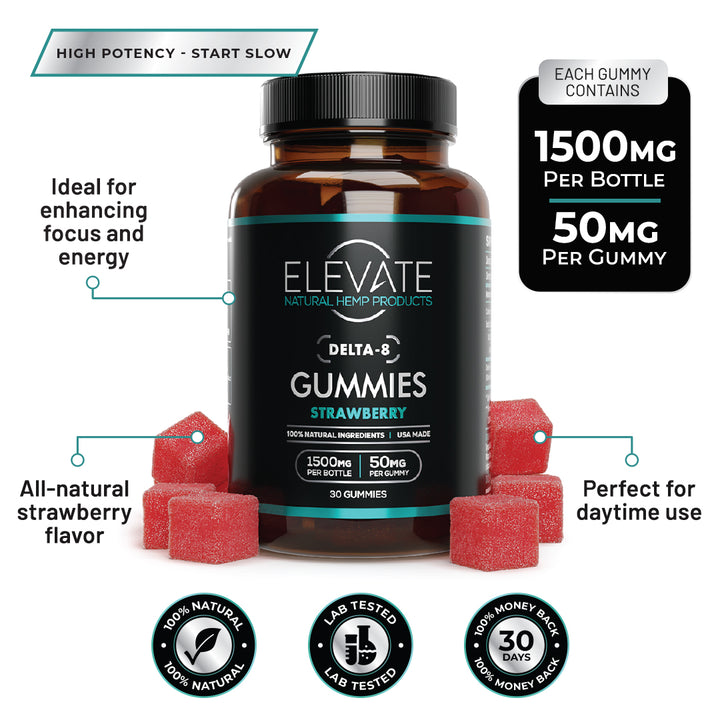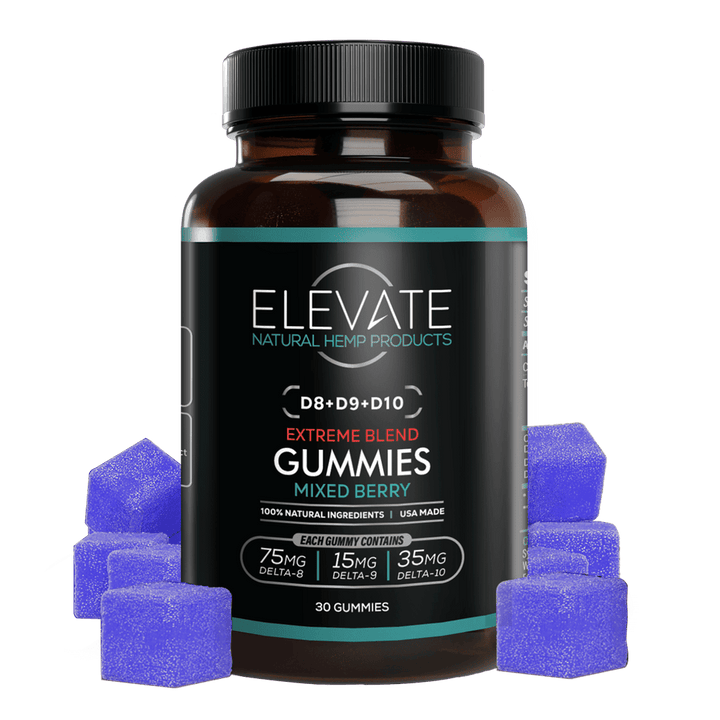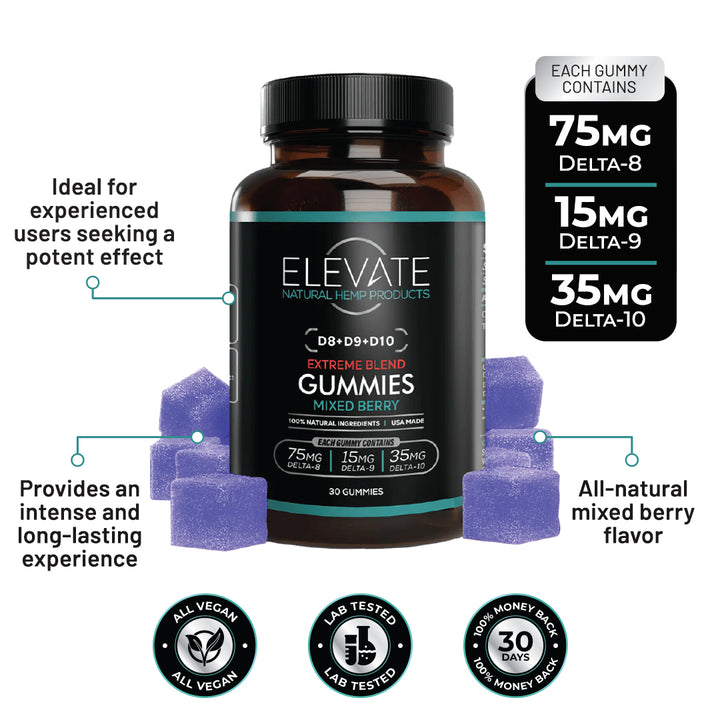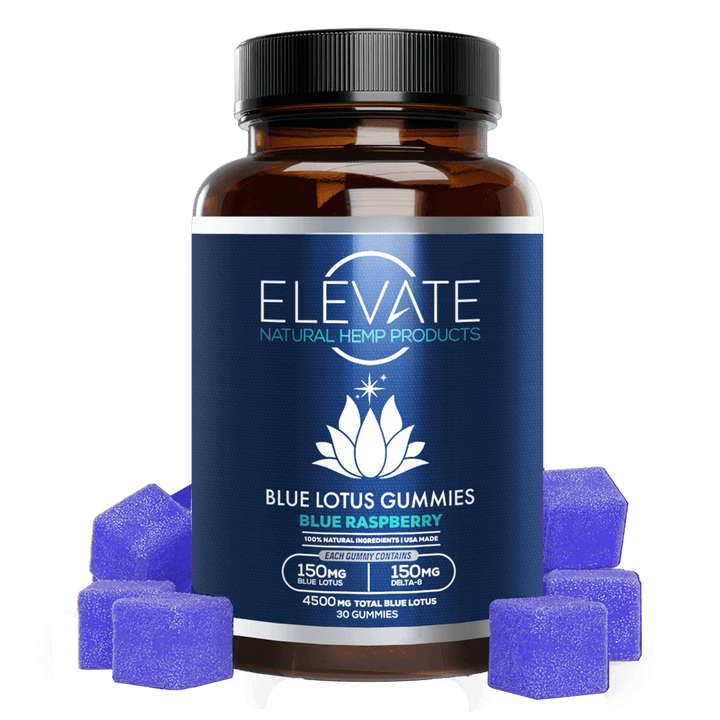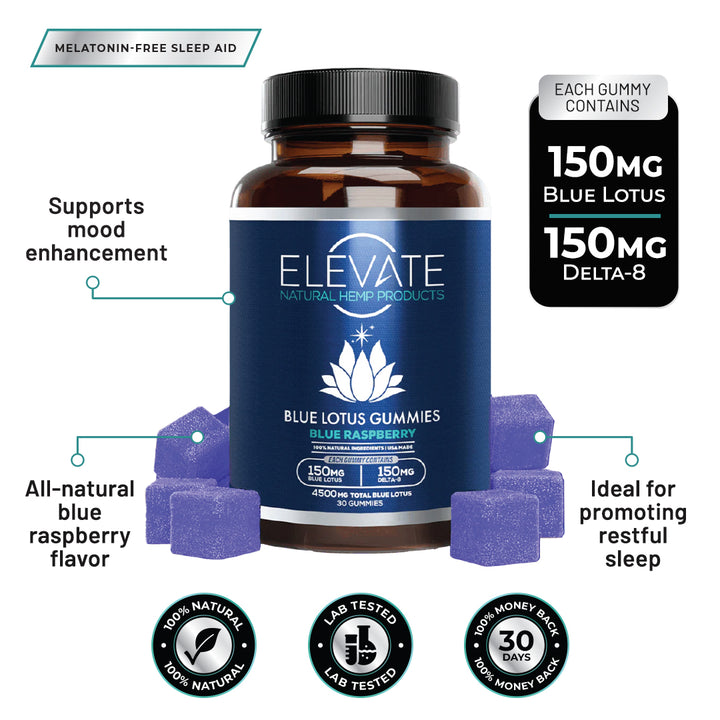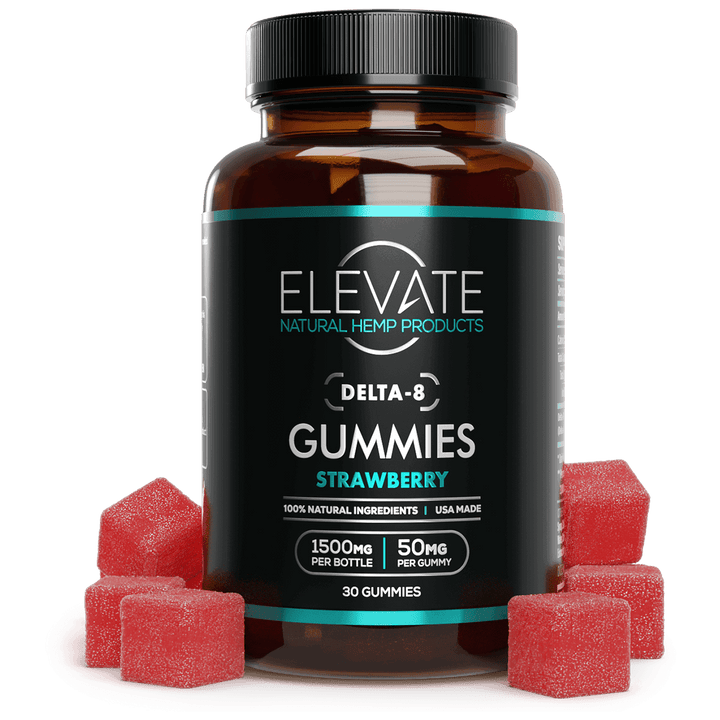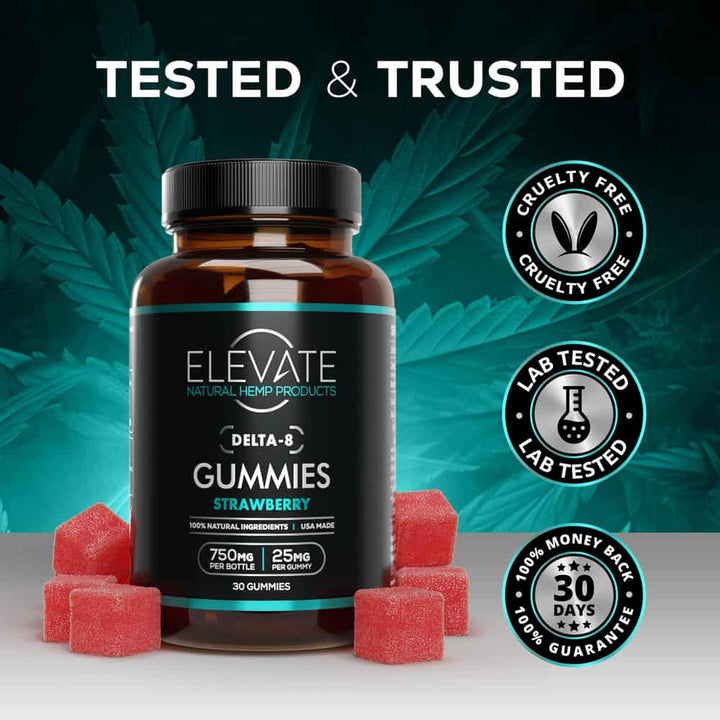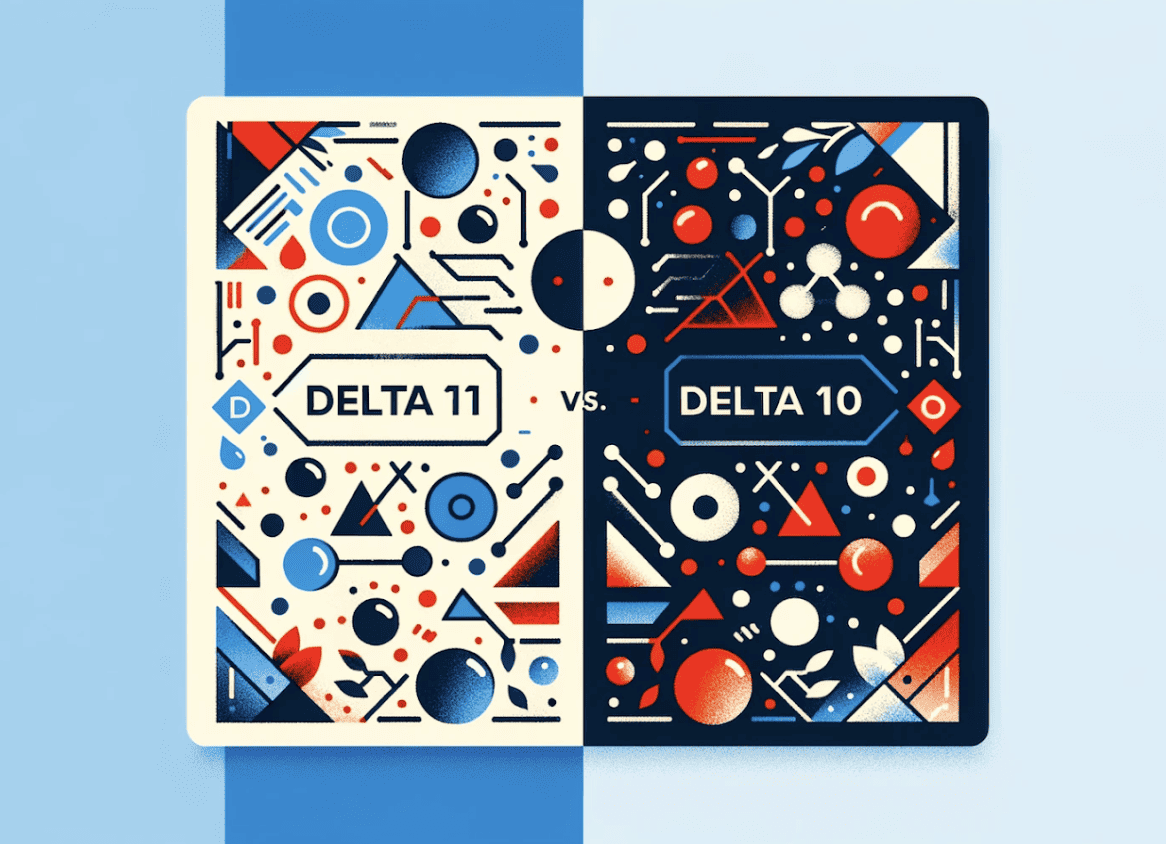You've probably heard the buzz about Delta 10. It's known for a more energizing, clear-headed high that’s different from other cannabis products. But before you try it, you likely have some big questions. What are the real effects? Is it even legal where I live? And the big one: how long will Delta 10 stay in your system? This guide gives you the straightforward answers you need. We'll cover everything from its unique benefits to how it's detected, so you can make an informed choice.
Elevate, your steadfast ally on this daring expedition, is poised to plunge into the fascinating abyss of Delta 10—unveiling its benefits, demystifying its legality, and addressing the burning query that resonates across the community: just how long does the magic of Delta 10 linger in your system?
What is Delta 10?
Delta 10 is one of the numerous cannabinoids found in the cannabis plant, and it stands out for its distinct properties. As a molecular sibling to Delta 8 and Delta 9 THC, it shares structural similarities but boasts unique effects that set it apart.
Derived primarily from hemp plants, Delta 10 is part of the larger group of cannabinoids that interact with the endocannabinoid system in the human body. Unlike its more well-known siblings, Delta 10 offers a psychoactive experience characterized by a milder potency. This makes it an appealing option for individuals seeking the benefits of cannabinoids without the intensity often associated with THC.
How is Delta 10 Made?
A Semi-Synthetic Cannabinoid
Delta 10 is what’s known as a semi-synthetic cannabinoid. This means it isn't typically extracted directly from the cannabis plant in large quantities, but is instead created in a lab. The process involves converting CBD, which is naturally derived from hemp. This lab-based approach is necessary because Delta 10 exists in such small, almost untraceable amounts in the plant itself. As one resource on substance recovery explains, it's mostly made by chemically changing CBD due to its natural rarity. This method allows producers to create a consistent and reliable product.
This laboratory synthesis is crucial for making Delta 10 accessible to consumers. Because it and its cousin, Delta 8, are found in such minimal quantities, the most effective way to produce them is by converting more abundant cannabinoids like CBD. This controlled process allows for the creation of Delta 10 in a concentrated form, which is then used in popular products like gummies and vapes. Healthline highlights that this lab conversion is the standard method for creating both Delta 8 and Delta 10, ensuring a pure and potent experience.
Benefits of Delta 10
Discover the diverse range of reported benefits that Delta 10 brings to the forefront.
Anti-Anxiety Properties:
Users have reported experiencing a sense of calm and relaxation after consuming Delta 10. The compound interacts with the endocannabinoid system, influencing receptors that play a role in regulating stress and anxiety responses. This can potentially make Delta 10 a valuable ally for those seeking relief from anxiety-related symptoms.
Anti-Depressant Effects:
Delta 10 may have mood-enhancing properties, with users noting improvements in their overall emotional well-being. By interacting with neurotransmitters and receptors associated with mood regulation, Delta 10 could offer a potential avenue for individuals dealing with symptoms of depression.
Enhanced Focus:
Some users have reported experiencing increased focus and concentration with Delta 10 consumption. This could be attributed to the compound's interaction with the body’s endocannabinoid system, which plays a role in cognitive functions. Delta 10's effects may contribute to a state of heightened mental clarity and attentiveness.
Boosted Creativity:
Creativity is a complex cognitive process influenced by various factors, including mood and mental state. Users have suggested that Delta 10 may contribute to an open and creative mindset, potentially inspiring new ideas or perspectives. While individual responses may vary, some individuals find that Delta 10 enhances their creative thinking.
Mood Elevation:
Elevating mood is a notable benefit reported by Delta 10 users. The compound's interaction with receptors associated with mood regulation could contribute to an overall sense of well-being and happiness. This mood-elevating effect may be particularly appealing for those seeking a positive and uplifting experience.
Understanding the Risks and Safety of Delta 10
While many people enjoy the unique effects of Delta 10, it’s smart to be aware of the potential risks and how to use it safely. The cannabis landscape is still evolving, and being an informed consumer is your best tool. Understanding the full picture helps you make choices that are right for you and ensures your experience is a positive one. Let's walk through what you need to know about the safety of Delta 10, from how it's regulated to tips for responsible use.
Lack of Regulation and Research
One of the biggest things to know about Delta 10 is that the market isn't federally regulated. Because these products aren't checked by a government body like the FDA, the quality can be inconsistent. What's on the label might not perfectly match what's in the product in terms of purity or strength. Some products could even contain leftover chemicals from the manufacturing process. This is why choosing a reputable brand that provides third-party lab results is so important. You want to be confident that you’re getting a safe, high-quality product that has been thoroughly tested for purity and potency.
No Confirmed Medical Benefits
While we've talked about the benefits users report, it's important to note that there are currently no confirmed medical benefits for Delta 10 THC. The FDA has not approved it for any medical use or to treat any health conditions. The positive effects, like mood elevation and enhanced focus, are based on personal experiences rather than clinical trials. As research continues to grow in the cannabis space, we may learn more, but for now, it's best to view Delta 10 as a product for wellness and recreational enjoyment rather than a medical treatment.
Potential Side Effects
Like any cannabinoid, Delta 10 can have some side effects, especially if you're new to it or take a high dose. Some of the most common ones include dry mouth, a rapid heart rate, and feeling a bit sleepy. For some people, particularly at higher doses, it can also lead to feelings of anxiety or paranoia, and may cause some confusion or issues with coordination. The best way to avoid this is to follow the golden rule: start low and go slow. Begin with a small dose to see how your body reacts before deciding to take more.
Harm Reduction Tips for Responsible Use
Enjoying Delta 10 safely is all about being mindful and prepared. If you choose to inhale it, vaping is generally considered a better option than smoking. Also, there's no need to hold the vapor in your lungs for an extended time; it won't increase the effects and can be harder on your lungs. Always be aware of your dosage, especially with edibles like gummies, which can take longer to kick in. Start with a small amount and wait at least an hour or two before considering more. When you're ready to explore your options, you can shop all of our lab-tested products to find the right fit for your wellness routine.
Is Delta 10 Legal?
Navigating the legal status of Delta 10 is crucial for anyone looking to explore its potential benefits. Here's a detailed breakdown of the legality of Delta 10:
The Federal "Gray Area"
The legal situation with Delta 10 can feel a bit confusing, and that's because it exists in a federal gray area. Thanks to the 2018 Farm Bill, any cannabinoid derived from hemp containing less than 0.3% Delta 9 THC is considered federally legal. This is the loophole that allows Delta 10 to be sold in many places. However, the story doesn't end there. Because Delta 10 has psychoactive properties, many states have decided to create their own rules, with some banning or restricting its sale. This inconsistency between federal and state law means the market isn't well-regulated, so the safety and purity of products can be a concern. This makes it extra important to buy from trusted sources that provide comprehensive, third-party lab testing results for all their products, so you know exactly what you're getting.
State-by-State Differences
While the Farm Bill provides a federal framework, the legality of Delta 10 ultimately comes down to where you live. State governments have the authority to regulate or ban hemp-derived cannabinoids, and many have done so. As of now, several states have explicitly banned or restricted the sale and possession of Delta 10, treating it similarly to Delta 9 THC. Because these laws are constantly changing, it's your responsibility to stay informed about the rules in your specific area. Before making a purchase, always check your state and local regulations to ensure you're in compliance. A quick search for your state's hemp or cannabis laws on an official government website is the best way to get accurate, up-to-date information.
Hemp-Derived Source:
Delta 10 derived from hemp is generally considered legal. Hemp is defined by containing minimal levels of Delta 9 THC, the psychoactive compound associated with marijuana. As long as Delta 10 is sourced from compliant hemp plants, it falls within the legal framework.
Federal Guidelines:
The legality of Delta 10 is closely tied to federal regulations. Hemp-derived products, including Delta 10, are legal if they contain less than 0.3% Delta 9 THC, adhering to the guidelines set forth by the Agricultural Improvement Act of 2018, commonly known as the Farm Bill.
State-Specific Regulations:
While federally legal, it's essential to be aware of state-specific regulations, as some states may have stricter or different rules regarding the use and distribution of Delta 10. It's crucial to check and comply with the laws of the state in which you reside.
State-Level Bans and Restrictions
The legal picture gets a bit more complicated when you look at individual states. While the Farm Bill provides a federal green light for hemp-derived products, not every state has adopted the same stance for cannabinoids like Delta 10. The main issue is that some states classify it as a “synthetic cannabinoid” because it’s typically created in a lab from hemp-derived CBD rather than being extracted directly in large quantities. This classification automatically places it on the restricted list in those areas.
In fact, at least 14 states have moved to either ban or heavily restrict the sale and use of Delta 10. This is often due to concerns about its psychoactive effects and the fact that these products aren't regulated by the government, meaning their purity and strength can vary. This is why it's so important to do your homework on your local laws. Regulations can change, so staying informed is the best way to ensure you're making safe and legal choices when exploring products like those from our shop.
Third-Party Lab Testing:
Reputable Delta 10 providers often subject their products to third-party lab testing. This ensures that the Delta 10 content complies with legal limits and verifies the absence of contaminants. Consumers should look for transparency in testing practices when choosing Delta 10 products.
Regulatory Compliance:
Companies involved in the production and distribution of Delta 10 should adhere to comprehensive regulatory compliance. This includes following good manufacturing practices, accurately labeling products, and ensuring transparency in their operations.
Elevate places a premium on compliance, adhering to the highest industry standards to ensure that the Delta 10 products offered are in full accordance with federal guidelines.
How Long Does Delta 10 Stay in Your System?
The longevity of Delta 10 in your system is a key consideration for those exploring its effects. Unlike the instantaneous impact of inhalation, the duration of Delta 10 in bodily fluids, particularly urine, is subject to several factors.
Average Detection Period:
On average, Delta 10 can be identified in urine tests for up to three weeks post-consumption if going for drug testing. This period is a general estimate and can vary based on factors such as dosage, frequency of use, and individual metabolism.
Metabolism Matters:
Individual metabolic rates play a crucial role in determining how long Delta 10 lingers in your system. Metabolism influences the breakdown and elimination of substances from the body. Faster metabolisms generally result in quicker clearance of Delta 10.
Dosage and Frequency:
The amount of Delta 10 consumed and how often it is used can impact its detection window. Higher doses and frequent usage may extend the duration of detection, as the compound accumulates in the body over time.
Physiology Variances:
Each person's physiology is unique, influencing the absorption, distribution, and elimination of Delta 10. Factors such as body mass, hydration levels, prescription medications and overall health can contribute to individual differences in how long the compound remains detectable.
Urine Testing Specifics:
The sensitivity of urine tests can also affect the detection period. Different tests may have varying thresholds for identifying Delta 10, and this variability between drug tests can influence the accuracy and timeframe of detection.
Can You Fail a Drug Test from Delta 10?
The short answer is yes, you can absolutely fail a drug test after using Delta 10. Most standard drug screenings aren't designed to distinguish between different THC isomers. Instead, they look for the presence of THC metabolites, which your body produces after consuming any form of THC, including Delta 8, Delta 9, or Delta 10. Because Delta 10 is structurally similar to Delta 9, it will likely trigger a positive result. Even though Delta 10 is often marketed as a gentler alternative, it is still psychoactive and using it can make you fail a drug test for THC. If you are subject to regular drug testing for your job or any other reason, it's safest to avoid Delta 10 products to prevent any potential issues.
How Can You Take Delta-10 THC?
Delta-10 THC, like other cannabinoids, offers various consumption methods, allowing users to choose an option that aligns with their preferences and desired effects. Here are common ways to take Delta-10 THC:
Inhalation:
Vaping: Vaporizing Delta-10 THC using a vaporizer allows for rapid absorption through the lungs, resulting in quick onset effects. This method is popular for those seeking immediate relief or a faster onset of euphoria.
Edibles:
Delta-10 Edibles: Infused edibles, such as gummies, chocolates, or beverages, provide a discreet and convenient way to consume Delta-10 THC. The effects may take longer to manifest compared to inhalation, but they often last longer.
Sublingual Administration:
Tinctures: Delta-10 THC tinctures, administered under the tongue, enable sublingual absorption, providing a middle ground between rapid onset and prolonged duration. This method allows for precise dosage control.
Topical Products:
Delta-10 Topicals: Creams, balms, or patches infused with Delta-10 THC are designed for localized relief. They do not produce the psychoactive effects associated with systemic consumption but may offer targeted benefits.
Capsules:
Delta-10 Capsules: Encapsulated Delta-10 THC provides a measured and convenient way to consume the cannabinoid. Similar to edibles, the onset may be delayed, but the effects can be long-lasting.
Smoking:
Delta-10 Flower: Similar to traditional cannabis, Delta-10 THC can be consumed by smoking its flower. This method offers a familiar experience for those accustomed to smoking and may provide quicker effects compared to some other methods.
Dabbing:
Delta-10 Concentrates: For experienced users, dabbing Delta-10 concentrates offers a potent and efficient method of consumption. Dabbing involves vaporizing a concentrated form of Delta-10 THC for a strong and rapid effect.
Delta 10 vs. Other Cannabinoids
The world of cannabinoids is vast, and it can be tricky to tell them apart. If you're trying to figure out where Delta 10 fits in, comparing it to other popular options is the best way to understand its unique vibe. Think of it like choosing your afternoon drink—do you want a bright, uplifting iced tea or a calming, mellow chamomile? Each cannabinoid offers a different experience, and knowing the key differences helps you find your perfect match for any occasion. Let's break down how Delta 10 stacks up against some other well-known compounds.
Delta 10 vs. Delta 8: Energizing vs. Relaxing
Think of Delta 10 and Delta 8 as siblings with opposite personalities. Delta 10 is often described as the more energizing and uplifting of the two. Users report feeling more focused, creative, and sociable, making it a great choice for daytime activities or tackling a creative project. On the other hand, Delta 8 is known for its more relaxing and calming effects. It’s the cannabinoid you might reach for when you want to unwind after a long day, watch a movie, and ease into a state of mellow comfort. While both are milder than traditional THC, your choice between them really comes down to whether you’re seeking a gentle lift or a soothing calm. If relaxation is your goal, you might want to explore Delta 8 gummies as an alternative.
Delta 10 vs. Delta 9: The Original THC
Delta 9 THC is the most famous cannabinoid—it’s the primary compound in marijuana and what most people think of when they hear "THC." It’s known for its potent psychoactive effects. Delta 10, by comparison, is its milder, hemp-derived cousin. While it provides a similar euphoric feeling, the intensity is dialed way back. This makes Delta 10 an excellent option for people who are new to THC or for those who find the effects of Delta 9 to be overwhelming. The legal status is another key difference; because Delta 10 is typically derived from federally legal hemp, it's accessible in more places than marijuana-derived Delta 9.
Delta 10 vs. HHC: A Potency Comparison
HHC, or hexahydrocannabinol, is another popular cannabinoid that offers a unique experience. When it comes to potency, HHC is generally considered to be stronger than both Delta 8 and Delta 10, but slightly less intense than Delta 9. This places it in a nice middle ground for those seeking an experience with a bit more punch than Delta 10 without the full force of traditional THC. HHC is also noted for its chemical stability, which gives it a longer shelf life. If you find Delta 10 a bit too mild for your liking, HHC gummies could be the perfect next step to explore.
How It Compares to More Potent Cannabinoids
While Delta 10 is a fantastic and moderate option, the cannabinoid landscape includes some much more powerful players, such as THCP and THC-O. These compounds are known for being significantly more potent than even Delta 9 THC, with effects that can be intensely psychoactive. According to some reports, these stronger cannabinoids are facing more legal scrutiny due to their high intensity and the limited research on their safety. This context really highlights Delta 10’s appeal as a milder, more predictable option. It offers a manageable and enjoyable experience without the potentially overwhelming effects of its more powerful relatives, allowing you to shop all options with a better understanding of where to start.
Where to Buy Delta 10?
In the expansive market of Delta-10, Elevate isn't just an option; it's your unwavering ally. Commitment to excellence isn't merely a promise; it's a standard upheld in every product offered. A curated selection that not only meets industry standards but sets them, ensuring your Delta-10 encounter exceeds expectations.
Our exploration of Delta-10 leads us to a crucial question: Where can you obtain premium products for this journey? Look to Elevate, standing proudly as the epitome of reliability, ensuring your Delta-10 experience is marked by unwavering quality, purity, and strict adherence to legal standards.
Embark on your Delta-10 adventure with Elevate– where excellence is not an option; it's the only path
Frequently Asked Questions
Will I fail a drug test if I use Delta 10? Yes, it's very likely. Standard drug tests aren't sophisticated enough to tell the difference between various THC compounds. They simply detect THC metabolites, which your body creates after using Delta 10, Delta 9, or Delta 8. If you have upcoming drug screenings for any reason, it's best to avoid Delta 10 products altogether.
What's the best way to describe the feeling of Delta 10? Many people describe the Delta 10 experience as a clear-headed and energizing lift. Think of it as a more productive, daytime-friendly buzz that can help with focus and creativity. It’s generally much milder than traditional Delta 9 THC and less relaxing or sedative than its cousin, Delta 8.
How much Delta 10 should I start with? The best rule is always to start with a small dose and see how you feel. If you're trying gummies, begin with half of one, which is typically around 5-10mg. Give it at least an hour or two to fully take effect before you even consider taking more. Everyone's body is different, so finding the right amount for you is a personal process.
Is Delta 10 considered natural or synthetic? Delta 10 is found naturally in the cannabis plant, but only in tiny amounts. To create enough for products like gummies, producers convert it from hemp-derived CBD in a lab. This is why it's often called a semi-synthetic cannabinoid. It comes from a natural source but requires a lab process to be concentrated into a usable form.
Why should I choose Delta 10 over Delta 9 THC? The main reason to choose Delta 10 is for a milder, more functional experience. If you find that traditional Delta 9 THC makes you feel anxious, overly sedated, or just too "high" to go about your day, Delta 10 offers a gentler alternative. It provides a light euphoria and mental stimulation without the intensity that can come with Delta 9.
Key Takeaways
- Know Delta 10's unique high and its legal gray area: Delta 10 offers a clear-headed, energizing experience, but its legality is complicated. While federally permissible under the Farm Bill, many states have their own restrictions, so always confirm your local laws before buying.
- Expect to fail a drug test if you use Delta 10: Most drug screenings can't differentiate between THC types and will detect Delta 10 as THC. If you are subject to testing for work or other reasons, it's best to avoid it completely.
- Choose tested products and dose carefully for a safe experience: The Delta 10 market isn't federally regulated, making third-party lab tests essential for verifying purity and potency. Always start with a small dose to understand how it affects you before consuming more.

